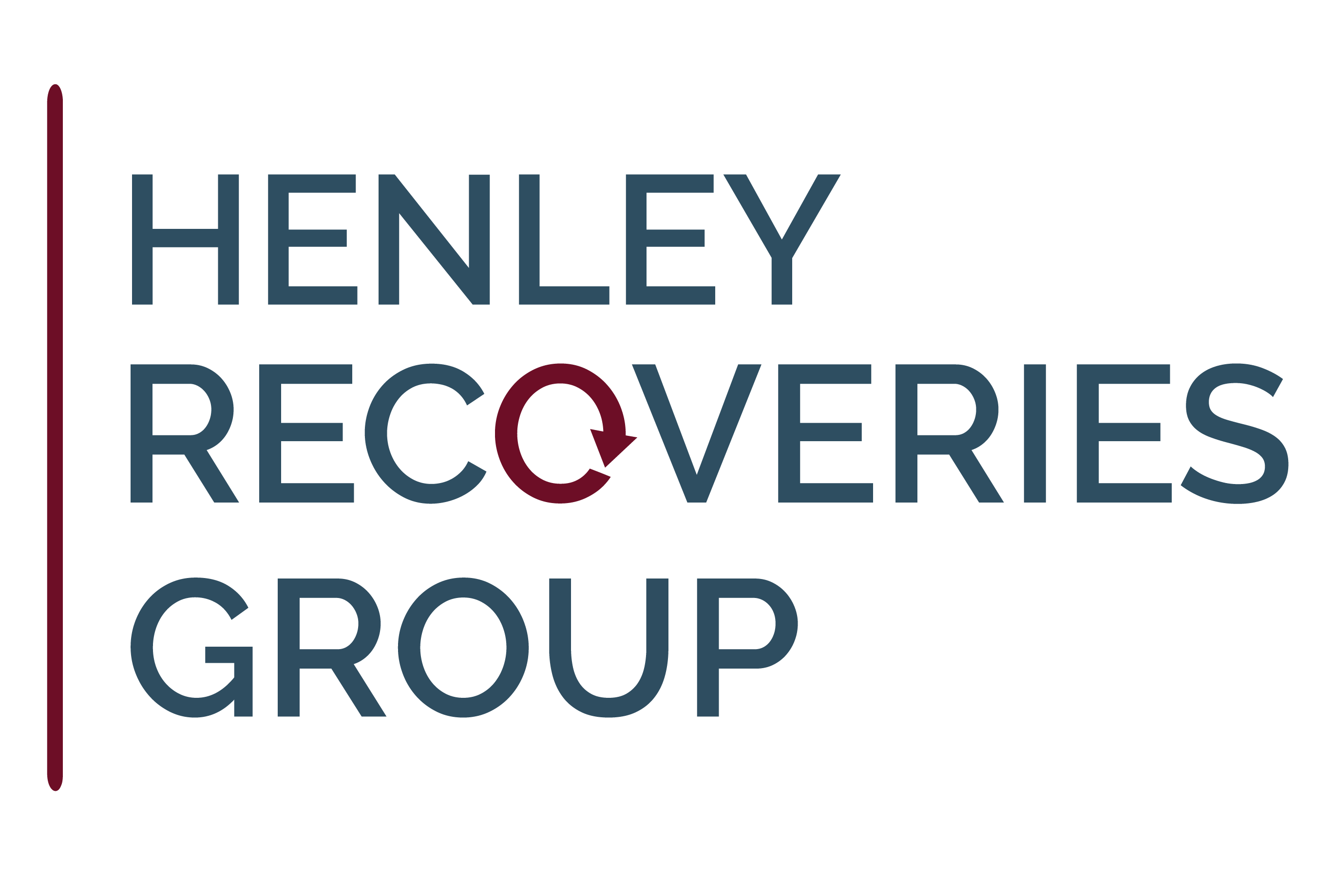
Looking for the Warning Signs Before a Client becomes a Debtor
30 years in the business and never had an issue
It’s always great to hear the many success stories from businesses who succeed in avoiding debts. The sad reality is that this sentence is usually followed by “… until this one fella ripped us off so badly.” Unless you are paid prior to the work being done, there is no escape from the reality that humans don’t always do what is right. We see a plethora of different debtors, malicoious and accidental. We would like to think that most of these situations are avoidable before work even begins.
Why should we bother checking?
It’s great if business works well, but what if the one job could ruin it all? Many of our clients and debtors alike have been burnt by that one larger job they accepted which ended up turning the business upside down. For the smaller jobs, so much undue stress and time is put in to a situation which should never existed! It’s sometimes more frustrating that more time is needed to chase up a $100 bill which had little margin for your business. Either way, checking for warning signs prior to work for any job can save future hassle and hardship if done correctly.
“I wasn’t sure about them from that first chat…”
Whether you are potentially judging someone hard or have your Spiderman tingle firing, trust yourself and look further before starting! More often than not, there is a reason for your suspicions. This can include:

- Unwillingness to pay a full deposit
- Negotiation on a set price from the get-go.
- Lack of personal contact details
- Lack of communication
- Requests to delay invoices
- Go-Lucky/carefree attitude towards payment schedule
- Avoiding anything in writing/word of mouth only
- Bad credit history
- Other debts
- Past work not finished by past businesses
- Job is for a client moving away
- A Silver Tongue and promises which never eventuate
Many of these signs are easy to see but it’s hard not to try and help a client in need. We hope that if you cannot act for every client that you can take the right precautions to avoid future implications.
PREPARE!
Usually, 30 years of no debts means you have a good system in place. A quick check on a program like CreditorWatch can mean a world of difference as you can see credit scores and current credit ratings on the business. In addition to this, we always advise to protect your current contracts and potentially invoices by using our free protection service. We love to look at what we can do to help you avoid debts and cover you if you do have issues with non-payers. Again – it’s all free, no payment later on, no half finished job – Free. What are you waiting for?
What if it’s unavoidable?
If you are in business, a debt will pop up one day, that’s why we are here to help. With the protection in place, our recovery services can be free to you. We believe in our process and our drive to get your money back. If you are looking to recover for financial reasons or just the principle, don’t hesitate to contact us – we are here to help.
We have more blogs for our services and notes from experience in this industry. We hope you can profit from these and avoid situations with unpaid invoices.
Henley Recoveries Group are a no-win, no-fee debt collection agency with an excellent track record of collections. Recover your unpaid invoices by submitting a debt with us.
Contact us on our main phone, 0466 243 114 or email info@henleyrecoveriesgroup.com.au to discuss how we can help.

Financial hardship, bankruptcy and insolvency
Overdue invoices which involve financial hardship, bankruptcy and insolvency are some of the hardest cases to collect. Whether it is with an individual or a company, there are still ways that you can avoid or collect your invoices.
For clarification, we are dealing with an owing party who has not declared bankruptcy, external administration or liquidation. There is some great info HERE from ARITA regarding definitions of these processes. Another link HERE for more info on voluntary administration and liquidation from the Bankruptcy Advisory Centre.
Mitigation / Protection
Debtor Companies: If you have signed agreements for your services, a director’s guarantee can go a long way in collections. This makes the director personally liable to pay off the debt, even if the company does liquidate in the end. Usually it includes terms such as debt recovery and legal costs to be on charged to the debtor/director.
Unfortunately, many debts come our way where the debtor is liquidating with no director’s guarantee. Our clients are required to wait in line for funds to be distributed to the creditors, providing there are any funds at all.
Having protection such as this is one of the best tactics in coaxing payment from your debtors but can add extra time and paperwork to the whole process. If this is you, then there are a lots of complex processes to get your head around to move forward with recovering your money.
Debtor Individuals: These cases seem to have more wiggle room with where they can go. The more info you have, the better. Signed agreements are always best, but any written confirmation of the debt itself can help with future collection. The original signed terms always come in handy whether the matter ends up being taken to court or further negotiation.
Patience
Sometimes the answer for collection is to wait for the opportune moment. If we can see the intent of a debtor is to pay, an option is to set up a payment agreement to achieve the following:
- Reset the statute of limitations – This is basically the life of the debt. Most states in Australia mark a debt age to be 6 years from last payment or written admission of the debt or 12 years from last legal judgement of the debt. For a debtor who cannot pay off the debt in full, we want to make sure they do not “outlive” the debt.
- Proof of intent – Although we can argue that this is for further proof if legal action is necessary, this is actually more for the debtor themselves. Generally, debtors feel that they are taking responsibility for a debt when beginning payments. The debt begins to become less of a scary problem and more of a fixable situation. A willing payer is the best situation you can have as every cent available will be paid to you.
- Chip away at the debt – As well as the debtor feeling responsible, if action is needed down the track, legal costs potentially are lessened if the debt is smaller.
- Potential change of situation – All these things combined lead to the moment we are waiting for, full payment of the overdue amount. Your patience can be rewarded with the company or individual’s life making a turn to a brighter future. The result is a debt still chaseable in the statute of limitations, a debtor who feels responsible and they have already contributed to the debt who now wants to resolve the matter.
Money
The other way to do things is to push for legal action. Some debtors need a nudge to get resolution and this situation is no exception. There are costs to go down this path. Thankfully, proper protection potentially pushes those fees to your debtor. I will clarify that we generally advise further action when no meaningful agreement can be found.
As there are many different scenarios, it is tricky to define a solid process to resolve these cases without information but our goal is always the same.
Coax payment with the least amount of action possible.
We hope to do this as to:
- Save on further costs
- Save time on potential lengthy wait periods with the court system
- Keep the situation open for meaningful agreements with the debtor
How do we help?
The majority of best results come from speaking with your debtor openly about the situation. This includes talks about the future actions we will need to take if we cannot resolve the situation. We have the tools and experience to find what method or future procedure will give the best chance of recovery.
For example, your debtor may receive serious fines and criminal charges if their company is found trading insolvent. They may have been resilient to a point, but further discussion may lead to a meaningful agreement to benefit the parties involved.
Whatever the situation, we will advise so you may make the right choice for the situation. We hope that if you submit a debt with us, we can help you find the best resolution to your situation.
We have more blogs for our services and notes from experience in this industry. I hope you can profit from these notes written.
Henley Recoveries Group are a no-win, no-fee debt collection agency. Recover your unpaid invoices by submitting a debt with us.
Contact us on our main phone, 0466 243 114 or email info@henleyrecoveriesgroup.com.au to discuss how we can help.

The best time to recover a debt.
After the last blog talking about old debts, we had questions regarding when is the best time to recover a debt? A case can be made that some debts require a time to cool down and breathe before attempting to recover once more. Others may claim for slow payers that letting your client get in a better financial position can be profitable.
None of this is false, every debt is different and involves different people in unique situations.
So when is best?
As soon as possible – let me explain.
I agree that so many circumstances can affect timing, including the above and your own budget, unless you are protected. We see this every day in every case. Every situation has a key moment where all the cards are lined up and the chances are the best they can be. Sometimes collection happens after a 2 minute talk with a debtor, sometimes after 3 emails and others after almost winding up a company.
My question is, why risk it? If someone owes you money, chances are you aren’t the only one. A few articles including 10 Biggest Mistakes People Make When Paying Off Debt (written by Bill Fay) mention many debtors fall into the trap of a snowball effect of debts. Most helpful organisations push debtors to pay off one debt at a time. What happens if you follow-up on payments for a year before collection? You are now at the back of the line.
Recovering Debts is what we do.
No matter what, the best time to recover a debt is a soon as possible. If instant resolution isn’t the answer, we can provide the tools and structure to ensure when the opportunity is there, the collection can happen. To avoid the mistake of chasing up a payment for a year and wasting your valuable time, let us do it for you. Our team is trained to find the best solution at ANY age of debt and we hope we can show you this with results.
Although this is just a short blog regarding age of debts, it’s really a short answer to an even better question. When do you want your money paid?
On time – Use accounts receivables to help.
Now – Use debt collection
Someday in the future – We will be here for you and happy to help.
We have more blogs for our services and notes from experience in this industry. I hope you can profit from these notes written.
Henley Recoveries Group are a no-win, no-fee debt collection agency with an excellent track record of collections. Recover your unpaid invoices by submitting a debt with us.
Contact us on our main phone, 0466 243 114 or email info@henleyrecoveriesgroup.com.au to discuss how we can help.

Recover your write-offs.
The Issue
Sometimes it just doesn’t seem worthwhile to recover your write-offs. The job is done, the invoice has gone out, 5 calls and 10 reminder emails have been sent. Any more effort would be a waste. It could be that the debt is small or just in the “too hard basket”, but it is sad to never see the hard earned money.
Our hope is that we can help out in this situation whether it is with our Accounts Receivable process or Debt Recovery further down the line.
Is this worthwhile for me?
We pride ourselves with being able to work through a collection case as autonomously or as particularly as requested. When this is applied to one of these write-offs, we move to a more autonomous process. We look to produce results with the least amount of effort on your part. This includes debts from up to 6 years ago, silent debtors and those who promise over and over to pay…
Many of our debts we collect are quite small, under $500. Our Accounts Receivables clients have a different experience with these than our normal debt collection process. Our system picks up on these debts before they become debts, before debt recovery is needed. Sometimes a good accounts system is all you need to avoid the pain a stress of a debt unpaid.
What’s the catch
With some of these write-offs, chances of collection can sometimes be lower than our usual rate. As with any case, it is all dependent on the situation and how much info you have on the matter. This also means some cases will not be recoverable with our normal process and would require further legal action.
Final Thoughts
It is up to you if your debt is worth following up, but we are ready for it. Although pricing probably isn’t so much a worry for a write-off, you can find our fee structure here to help make a decision. Even better then recovering write-offs, how about reducing how many you get? I always mention we have our FREE protection service to help mitigate debts and issues.
Submit your interest in having us look over your contracts and quotes here.
We have more blogs for our services and notes from experience in this industry. I hope you can profit from these notes written.
Henley Recoveries Group are a no-win, no-fee debt collection agency with an excellent track record of collections. Recover your unpaid invoices by submitting a debt with us.
Contact us on our main phone, 0466 243 114 or email info@henleyrecoveriesgroup.com.au to discuss how we can help.

Free Protection, Free Debt Recovery
Of all time, 2% of all our clients have what I would consider, good protection.
TWO PERCENT
That’s 2 % of our clients who can put less energy into worrying about being paid for their hard work and more energy into doing what they do best.
Wait, debt recovery is free?
YES! This is our aim. We work to get income to feed our families but we do not need that income from you. How horrible does it sound to have to pay someone to chase an invoice which your client did not uphold? It’s the last thing you need, more money not in your pocket for a situation which shouldn’t exist. Shouldn’t your debtor be paying us because of their issues? No wonder Debt Collection can leave a bad taste in some people’s mouths.
We started this company to HELP businesses, not put you more out of pocket.
The legality of the debt recovery systems stops us from on charging costs to debtors in most cases unless our clients have sufficient protection in their contracts, quotes and invoices.
Wait, free protection?
We want you to be a part of this. We look over contracts and quotes to see how we can provide free protection for you. Let me be clear; we do not have a lawyers looking over your contracts in this service. If we did, we would need to charge an arm and a leg like other companies need to. To give sufficient protection for debt recovery, we don’t need to do that.
Our free service here provides with tools you need to make debt recovery and legal costs charged to your debtor. We do what we can to tailor this to your situation. It’s not just a generic list of every little thing you can use but also not a complete re-write of your contract, which a lawyer would do. We take the time to advise as a debt collector on what will work best.
More Protection = Less Debts
Proper protection with your invoices will mitigate unpaid issues. Many debts submitted with us are from painful people who get a kick out of making your life and mine miserable. Debtors want to create more stress by making you pay to recover your money that you have rightfully earnt. They know unless we escalate to a legal action point, (whether that’s Credit Ratings, Small Claims Tribunal, Local/Magistrates Court or our favourite, Statutory Demand for wind-up of a company) they won’t be out of pocket or disciplined for their wrong doing.
Who in their right mind would risk a fight over nothing when they have to pay to do it?
We know that this simple fact stops many debts from ever existing. Things become a lot more serious once you have signed that debt recovery and legal is your problem.
Disclaimer
As mentioned earlier, our lawyer isn’t doing this service for you. Our trained industry professionals who deal with this daily are running this service. This is not legal advice, but for a debt collector like myself, I see this protection and get excited knowing that I can help you recover your money and not charge you a cent.
Be the 2%
So what are you waiting for? Submit your interest in having us look over your contracts and quotes here and our team will have a look when they are available .
If the protection didn’t deter a painful debtor or you didn’t have the chance to protect yourself, submit your debt with us.
No matter the situation you are in, whether you are protected or not, need the money or chasing for principle, have a large dispute or a disappearing Houdini of a debtor, I hope we can assist in recovering your debt and help you move on in your business life.
We have more blogs for our services and notes from experience in this industry. I hope you can profit from these notes written.
Henley Recoveries Group are a no-win, no-fee debt collection agency with an excellent track record of collections. If you have unpaid invoices that need recovering, submit a debt with us for your best chance of getting paid. Our online form is easy to use and can be completed within 5 minutes.
You can also give us a call on 0466 243 114 or email info@henleyrecoveriesgroup.com.au for more information, or to discuss how we can help your business get paid.

Variations: You either love them or hate them.
You have filled out the contract.
You have sent out the plans.
You are ready to finish a job and send an invoice.
Then the mighty variation comes along.
You either love them or hate them.
We at Henley Recoveries understand the high risk involved with variations and disputes. We are not only invested in recovering bad debts but also in the prevention of them as well. Did you know variations are one of the most common causes for overdue invoices? Many of the disputes we come across involve a badly communicated or apparent unauthorized variation.
Four reasons why variation forms do not get filled out:
1. It’s done and dusted before the pen hits the paper.
It can sometimes seem that a job is too small to worry about more formalized agreements, however, these small changes are what debtors tend to cling to in a bad situation. A few minutes spent getting the variation confirmed can save the headaches and trauma of explaining why you are owed for your hard work.
2. You don’t know the cost until completed.
It can be scary or seem like bad business to put down an approximate cost for a job you haven’t completed. Some jobs just don’t have that luxury. No one wants to charge too little for a job that wasn’t originally agreed on but we all want that security knowing that we will get paid for the work that we have done.
3. The value of a handshake is taken too highly.
This client seems reasonable right? I’ve done work for this lot for the past year, they will treat me right. We have been mates for years, surely I don’t need to get anything in writing.
Although most of the time, we can judge our clients well, there are some curveballs out there. It is always sad to see debts pop up between trusted businesses with long relationships. Unfortunately disagreements can happen even in the closest of business relationships and although we want to make sure the relationship can be rekindled and debts paid, it can be hard without proof of who said what. Even so, we would hope that the situation can be avoided in the first place!
With regard to new clients, you can email us if you’d like assistance with performing credit checks to see if there is a hidden history that may affect your future business.
4. It’s a time waster and a pain to get done.
The most simple and generally agreed on reason for no variation form. What more can I say? We all have better things to do than more paperwork.
How can I get around these common issues?
1. If unsure on cost, include a scope of high to low pricing and breakdown once the job is complete. You are most likely already doing this by word of mouth with your client, don’t be afraid to be general on your variation. The more information you have, the safer you will be.
2. Set aside a time prior to starting work to discuss any foreseeable changes with the client. If your client is aware, there is less chance of an emotional response when variations are required.
3. Make sure everything is in writing even if it is a quick text after a conversation confirming details. It is amazing to see how a disagreement can change when you or your client have the original discussion laid out in front of the issue at hand. When you submit a debt with us, this is one of the first steps we take when it is disputed. We like to point out the real facts to eliminate emotion or wrong ideas from the equation.
Digital Variation Form
Lastly, we want to offer a free digital form that simplifies the variation process and saves you valuable time. Your clients can simply fill out the form on their phones for an instant digital signed variation form to mitigate the risk for your business. To register your interest in our form, click here and we will let you know when we can provide you with this simple way to deal with variations.
Benefits of this form include:
1. Send from wherever you are, no need to leave while you’re in the middle of something.
2. No reason for your client to procrastinate and delay paperwork.
3. No unnecessary hold ups for your job.
Variations are featured in many of our previous blogs because it’s a very important step in avoiding debts in the first place. We see a lot of cases where the client will cling to the fact that the variation is not as expected or asked for, even though they have now received the product. By having a written account of the variation, our experience shows that your chances of having a dispute and needing to take action are considerably lowered.
Henley Recoveries Group are a no-win, no-fee debt collection agency with an excellent track record of collections. If you have unpaid invoices that need recovering, submit a debt with us for your best chance of getting paid. Our online form is easy to use and can be completed within 5 minutes.
You can also give us a call on 0466 243 114 or email info@henleyrecoveriesgroup.com.au for more information, or to discuss how we can help your business get paid.

7 Ways to Protect Your Business from Bad Payers
Nobody likes dealing with debt. Following up non-payers isn’t fun; it is time consuming, usually frustrating and often ends in businesses writing off money that they are rightfully owed.
When we are talking to business owners about utilising our services, we hear too often that they have been giving up on their attempts to receive payment for work that they have already completed. It’s only fair to be paid for what you’ve done – so here are our 7 top tips for protecting your business from non-payers.
1. Perform credit checks on your potential customers
One really easy way to tell if someone is a ‘serial debtor’ (ie someone who routinely doesn’t pay) is to have a quick look at their credit history. A lot of times we get asked ‘what can you actually do to make someone pay’ and the answer is: affect their credit history!
Credit history can tell a lot about a potential customer; whether or not they have defaulted on payments, if debt recovery agencies have recorded anything against them in the past, if debt recovery agencies have had amounts referred to them for collection, even how much money they have outstanding. Plus, the data is all up to date.
You can email us if you’d like assistance with performing credit checks on potential clients.
2. Have a signed contract with your client
Having a signed contract by the party that owes you money should not be underestimated. Contracts can mitigate disputes (and excuses) for non-payment, they provide proof of the works being signed off on, and you have a legally-binding agreement to follow up on. Not to mention that you can also add clauses into your contracts to further protect your business.
Think your jobs are too small for a contract? While we believe that no job is too small to have a signed agreement, we do understand that it’s extra paperwork and time – for both parties. At the very least, if you can get your clients to sign a quote for the work (a quote that points to your terms of trade), then it’s definitely a good starting point.
The next step is to make sure your contract (and/or terms of trade) are able to protect your business against not being paid.
3. Have your contract checked
A solid contract is a very smart investment – especially if your client accounts are of high value. Consider having a solicitor versed in contract law look over your contract to ensure that you are adequately protected and able to pursue recovering a debt to the full extent of the law.
Not ready to have a solicitor look over your contract? We know this can be very costly, so we are offering a free consultation with our legal team to give you some complimentary industry advice on your contracts. This isn’t legal advice and we still highly recommend that you have a solicitor look over your contracts but we do have a few tricks up our sleeves to recommend to you that allow you to get the most out of the debt recovery process, and ultimately: get paid.
4. Get written confirmation of variations to work
One of the biggest factors for non-payments that we see is a dispute over the work completed. Often the customer will ask for a variation to the original contract, quote or request – but do so over the phone. Then, refuse to pay stating that they never asked or approved that. The more you get in writing – the better.
We recommend that after you give the information about the variation to the job over the phone, you let your client know that you need them to sign a variation form for this to go ahead. At the very least, you should get them to confirm the changes in writing via email or text message. This means that there is proof and you can minimise any disputes that may arise while trying to get payment.
5. Photograph your work & get proof of delivery or completion
When you’ve protected yourself legally against incurring debts, the next step is to mitigate disputes. Like the written variation form above, ensure that you photograph or retain records of the work that you have done for your clients. This ensures that if a dispute does arise in regards to workmanship or quality of an item or service you provide, you can prove that it was done to a good standard.
Whether you provide goods or services, getting a signature on completion or the work or handover to the client is always another great way to mitigate disputes and non-payments.
6. Have a set invoicing and follow up system
This is featured in many of our previous blogs because it’s a very important step in the process of getting paid. We see a lot of cases where the client never received the invoice, or they simply forgot it was to be paid. By having a clear cut, written process for your accounts, you can ensure that every opportunity is given to your clients to make payment.
The process could look something like this:
Completion of the job
Within 24 hours
Send an invoice to your client. Doing so promptly ensures it is fresh in your client’s mind and making it more likely that you will be paid. Make sure you have your payment terms and due date on the invoice, as well as contact and payment details for you.
On the due date of the invoice
Send a friendly, automated reminder that payment is due today and make sure to clarify that if they have paid, they can ignore this reminder.
7 days past the due date
Send a friendly email stating that their account is overdue and that payment still hasn’t been received. Let them know to contact you if there has been any issues.
10 days past the due date
Send a text to your client to check if they’ve received your emails regarding their account.
14 days past the due date
Call your client and ask them to make the payment ASAP – let them know that you’ve been trying to contact them regarding this.
21 days past the due date
Send them a final reminder via email that their account requires payment and it is overdue. Let them know that they have 7 days to make payment before the account may be referred to your collections team.
26 days past the due date
Call or text your client once more to prompt payment. Let them know that the account may be referred to collections if contact or payment is not made ASAP.
28 days past the due date
Submit the unpaid invoice for recovery with your collections agency. Before doing so, you can try and give the client one final call to let them know that is what you will be doing.
Once your process for invoicing and following up on overdue accounts is in place, you then should only be left with disputes – or really difficult debtors.
7. Know when to involve the professionals
Unfortunately with disputes and difficult debtors, sometimes a solid contract and the best accounts procedure in the world isn’t going to help you get paid. There are always going to be a couple of really difficult people. Consider partnering with a no-win no-fee debt recovery agency, where they can do the follow ups and negotiations for you. Not only does this save you time, but it also saves money, relieves the stress on you from following up and frees your focus to where your time is best spent – running your business.
Henley Recoveries Group are a no-win, no-fee debt collection agency with an excellent track record. If you have unpaid invoices that need recovering, submit a debt with us for your best chance of getting paid. Our online form is easy to use and can be completed within 5 minutes.
You can also give us a call on 0466 243 114 or email info@henleyrecoveriesgroup.com.au for more information, or to discuss how we can help your business get paid.

10 Common Errors That Make Debt Recovery Difficult
Debt recovery doesn’t have to be a long and difficult process. In fact, professional agents can achieve results quickly and effectively with the right information. Usually, the things that hold the process up are factors that come into play long before a debt is referred to a mercantile agency for collection.
A lot of the time, our clients aren’t even aware of circumstances that could potentially hold their case up. So here’s our list of 10 common errors that make debt recovery difficult;
1. Not having adequate protection against debts
We recommend always having your clients sign a contract, quote or terms of trade – no matter how small the job. Not only does this confirm that the debtor agreed to you providing goods or services, but you can also ensure that certain clauses are put into the contract to deter non-payments early on.
These clauses set out to ensure that you are able to recover any legal or debt recovery fees incurred while trying to get payment for invoices. In our experience, having these clauses within the contract has made the debts much easier and quicker to recover, and provides us with leverage to negotiate payment from the debtor.
2. Not gathering enough information from your debtor
Some of the most difficult debts to recover are those that come through with minimal contact information for the party owing money. Whilst we have recovered many cases with simply a phone number or an email address, they generally take longer to fully recover.
Important information to gather from your clients (to aid the debt recovery process) includes having at least a phone number, an email address, a postal or physical address and their full name. This allows us to cover all bases and have several methods to communicate with a debtor. Alongside that, should you wish to take any legal action you may require these details. We also recommend using this information to conduct a credit check on new clients.
3. Keeping insufficient or out of date records
Alongside not gathering enough information on the debtor, another common issue that we come across is having out of date client information. During your time with the client, ensure that you regularly check their contact details on record and ask them to update you if they have changed.
In combination with contact details, insufficient record keeping on the product or service provided to your client is also something that can complicate the debt recovery process. For example with our clients in the construction industry, a great deal of disputes we see could be solved with better record keeping. Keeping images of jobs and proof of materials purchased is good practice, as it allows us to prove to the debtor that the job was completed correctly, and mitigate any disputes that may arise causing settlement at a lower amount.
4. Insufficient quoting and invoicing
During the debt recovery process, if there are issues with our client’s quoting and invoicing, the debt is far less likely to be recovered. Errors and mismatching information on quotes or invoices is easily one of the biggest causes for disputes and non-payments that we see. If the administrative process is carried out correctly, it leaves little to no room for debtors to raise disputes or concerns about the funds in question.
When invoicing, not only do errors and insufficient information extend the debt collection process, but so does not invoicing quickly in the first place. While it can seem like a boring and administrative task, invoicing promptly after providing a product or service means that your work is fresh in your client’s mind – which naturally leads to quicker payment times.
See our blog on how to follow up on unpaid invoices for more information.
5. Waiting too long to refer an unpaid invoice for recovery
It’s no secret in the debt collection industry; the older a debt is, the less likely it is to collect. As debts age, we notice that the average timeframe for recovery begins to extend. Australian legislation also has ‘statute-barred’ debts, which outlines a strict time frame in which a debt can be legally pursued. Most states have a period of about 6 years; although we do recommend submitting a debt for recovery within a couple of months of it becoming overdue, for the best chance at full recovery.
6. Commencing legal action before trying debt recovery
We see many businesses that commence legal action before even attempting to utilise a recovery agency. This may seem as if it’s effective, however often it can be more costly and time consuming than simply going through a debt recovery agency. Debt collectors are skilled negotiators and are able to communicate with your debtors on a ‘clean slate.’ This means that a lot of the time, they are able to be more effective at reaching a solution or processing payments before wasting precious time and money.
7. Writing the debt off too early
On the other hand, writing a debt off too early because of the size or perceived difficulty of collection, is also a common occurrence. We have collected numerous debts that our clients were going to write off for being ‘too small’ or a ‘lost cause.’ Having a third party (in the form of a debt recovery agency) assist in the process, provides a fresh perspective and increased authority. Plus for debts that seem too small to recover, our agency operates on a no win, no fee basis – so why not give it a go!
8. Not being flexible or losing your cool
We aren’t talking about letting debtors just get away with simply not paying. This point is actually in reference to being unwilling to solve disputes. It’s very easy to become frustrated and fed up with a debtor who is repeatedly putting off payments. Reacting to the situation usually pushes debtors over the edge and consequently deters payment even further.
The best course of action is to remain calm and continue through your accounts receivable process. Be open to solving disputes (within reason) and hear out your debtor, or refer the debt to an agency to be collected. If you want advice on your accounts receivable process, you can contact us for a free consultation.
9. Only having verbal communication
While verbal contracts do carry legal weight, they are difficult to prove if the matter goes to court. The most effective safeguard against non-payments is to confirm prices, quantities or instructions for service in writing, prior to completing work for a client. An email or text message will suffice in the event that a contract or terms of trade is not applicable. Make sure that any variations or changes are also confirmed in writing, or through a variation form.
10. Letting client accounts build up
Another observation we have made is that many of our clients allow their debtors to build up rather large accounts with them. By the time it is referred to us, it takes far longer to solve as portions may be disputed, or even paid off. In turn, this also holds up the undisputed and unpaid amounts from being collected. Try to set a limit per client, based on their credit score or your company policy, as to how much debt they can incur before you cease to provide them with your services.
At Henley Recoveries Group, we specialise in debt recovery. We are experts at getting you paid! You can submit a debt for collection easily with us, in about 5 minutes using our online form. We are also offering free audits of contracts to help our clients to be protected against incurring debts. Email us on info@henleyrecoveriesgroup.com.au for more information.

Managing Your Post-Christmas Cash Flow
For some businesses, Christmas is one of the most profitable times of year, while for others it marks the beginning of their quietest period. Regardless of which category you fit into, effectively managing your cash flow is vital for maintaining the livelihood of your business. Here are five tips for managing that post-Christmas cash flow.
Follow Up With Your Debtors: Quickly
For businesses and individuals alike, Christmas and the period afterwards can be a maze of money management. Ensuring all overdue accounts are followed up on in a quick and timely manner, may be the difference between being paid and not being paid.
January to March is the period that a lot of entities get their accounts in line for the year ahead. By following up on your debtors in a quick and timely manner, you can get in before other businesses they may owe money to. This means that your accounts are paid and settled before the funds dry-up. You can read more about following up unpaid invoices in this article.
Review Your Accounting Practices
Ensure that you have good follow up practices in place for your accounts procedures. Set yourself a clear time frame for following up. By doing so, you are minimising the amount of overdue accounts that you are left with. That way, only accounts that need a push to recover get sent through to your debt recovery agents.
According to an article from Xero’s small business insights, cash flow falls to a yearly low across January. This means that as cash flow picks up, it is so important to be effectively following up overdue accounts – especially during February and March.
Forecast Your Cash Flow
If you have historical data for your business, use that to forecast figures for future holiday periods effectively. By understanding the data from previous holiday periods (and the time afterwards), you can ensure you can put plans in place and can mitigate unexpected cash flow shortages.
A great resource to help you with this is the cash flow forecaster from Business Victoria.
Prepare to Lodge Your BAS
Ensure that you’re using the down time to prepare to lodge your BAS for the next due period. If Christmas has been a particularly busy time of the year, make sure that you have effective practices in place to allow you to easily sort through receipts and invoices. This way, you don’t have to run around searching for information to complete your BAS.
Sort Out Your Contracts
If you are a service-based business, or one that provides goods on credit accounts, then early in the year is the perfect time to organise your contract and account terms. Ensure that you have clauses to protect your business and that your agreement allows you to minimise the potential of non-payment.
We are currently taking expressions of interest for a free contract audit, to ensure you are adequately protected against bad debts. You can apply for this complimentary service on this page.
Whether the new year means that you are too busy to follow up on accounts or you need some more positive cash flow within your business, it’s important to sort out overdue accounts. Make sure that you are leveraging the time of year and making space for positive cash flow for your business.
If you have overdue invoices that need recovery, you can easily submit a debt for collection by our expert agents in only five minutes, using our online form.

7 Cash Flow Management Tips for Small Businesses
Cash flow can make or break a small business. Successfully managing incoming and outgoing expenses is more crucial than ever this year. If cash flow is poor, opportunities are limited, business growth is stunted and running a business is definitely more stressful. However, positive cash flow means that you can invest in resources that will help your business to grow and prevent times where cash flow is down.
Here’s our top 7 tips for promoting positive cash flow within your business.
1. Send Your Invoices Out – Quickly
It makes sense: the sooner you send an invoice out, the sooner you can get paid. Getting invoices to clients promptly ensures that your services are fresh in their minds and gives them time to make payment. Set aside time in your schedule regularly to send, follow up and reconcile invoices.
2. Create an Accounts Receivable Timeline
Having a strict accounts receivable process (and sticking to it) means that you can stay on top of amounts that you are owed. Make sure that you define this process and have strict timeframes put in place.
For example, as soon as an invoice becomes overdue, send a reminder to your clients. In that reminder, request payment within the next 7 days. If you still don’t hear back from them after one week, give them a call. Should they still not make payment or get in touch with you, send the invoice to a debt collector – the sooner you refer the debt to a collector, the more likely the amounts are to be recovered.
You can find more information on following up unpaid invoices in our last blog post. Or contact us at info@henleyrecoveries.com.au if you’d like more information about our accounts receivable services.
3. Review Your Options for Payment
The more methods that you make available to your clients for payment, the most opportunities you have to get paid. Consider investing into different types of payment options, including EFTPOS/card payments, BPAY and direct debits, as well as ‘buy now pay later’ options, such as AfterPay and ZipPay.
4. Future-Proof Your Cash Flow
All businesses have ebbs and flows – it’s never static. During a positive cashflow period ensure that you’re investing into resources to protect your cash flow during tough times. For example, you could invest into marketing to ensure that you retain a steady stream of sales. You could even invest in new products, or training staff in different areas to expand your product and service offering.
5. Consult a Finance Professional
Engaging the services of a financial advisor doesn’t have to happen when your business isn’t doing well. When consulting a professional, they can help you to review your current processes, create a plan and put measures in place to prevent future losses. The Australian Government has details and recommendations on financial counsellors on the MoneySmart website.
6. Review Your Credit Terms
Providing credit to customers isn’t a bad thing. However, it can go downhill quickly if you don’t have strict terms that you provide that credit under. Ensure that your terms of trade, or client engagement contracts have clauses that protect you from incurring costs when collecting and following up on unpaid invoices.
7. Perform Credit Checks
Prior to engaging into a sizeable contract with a client, ensure you perform a credit check to see if there are any mercantile enquiries, payment defaults and other late or missed payments lodged against them. This allows you to ensure you aren’t engaging with clients who have a record of avoiding payments. You can request a credit check from Henley Recoveries Group by emailing us.
No matter the size of your business, cash flow management is important. By building out an accounting regime and planning for the future, you are preventing losses during months where cash flow is limited. Ensure that you are investing during the good times, so that you can mitigate the impacts of the unknowns and unavoidable situations.
Henley Recoveries Group specialises in cash flow management. Book a consultation with one of our senior consultants for personalised information and advice on your accounts receivable and overdue invoices. You can also Submit a Debt for collection, or call us on 0466 243 114.


